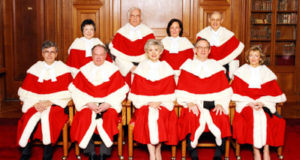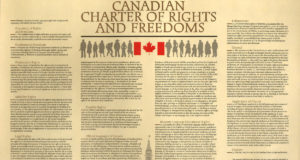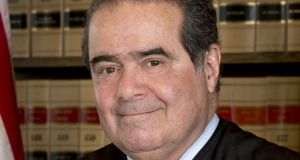The administrative state, the supposed sword of progressives, is not necessarily so. In many countries, the administrative state was constituted on the urging of progressives to advance a social justice agenda. In the United States, progressive reformers during the New Deal era sought to make government a “prescriptive entity” designed to advance certain progressive goals. Executive orders reached a “heyday” during ...
Read More »Author Archives: Mark Mancini
The Dark Art of Deference: Dubious Assumptions of Expertise on Home Statute Interpretation
The 10th anniversary of Dunsmuir presents an opportunity to revisit perhaps its most controversial aspect: the seeds it planted for a presumption of deference on home statute interpretation. As Professor Daly notes, the presumption is a “black hole” which engulfs questions of statutory interpretation in administrative law: Paul Daly, “Unreasonable Interpretations of Law” in Judicial Deference to Administrative Tribunals in ...
Read More »A Respectful Dissent from the Khadr Consensus
The case of Omar Khadr gives scholars a rare opportunity to question the fundamentals of public law damages. Such damages are notoriously difficult to quantify. As Lord Shaw once put it, “the restoration by way of compensation is therefore accomplished to a large extent by the exercise of a sound imagination and the practice of a broad axe.” This is ...
Read More »Justice Abella is Wrong to Prioritize Human Rights Over the Separation of Powers
In a recent commencement address at Brandeis University, Justice Rosalie Abella of the Supreme Court took a stab at President Donald Trump. Decrying “narcissistic populism,” Justice Abella argued that a “shocking disrespect for the borders between power and its independent adjudicators like the press and the courts” defines the modern era. This isn’t her first foray into political terrain. Last year, after receiving ...
Read More »Not Just A Pillowfight: How the SCC Has Muddied the Standard of Review
Recently, Justice David Stratas of the Federal Court of Appeal released an extremely helpful summary of almost every aspect of administrative law in Canada. Administrative law students, practitioners, and academics would be well-served to carefully read the document. But Justice Stratas’ piece is far from merely descriptive—in it, he provides a number of recommendations for a return to sound and ...
Read More »A Constitutional Pregnancy: A New Approach to Section 1 Following BC FIPA?
Can you get a little bit pregnant? Of course not. But recently, in BC FIPA, the Supreme Court of Canada held that it matters whether the government infringes constitutional rights by a little or a lot. The difference will determine the strength of evidence the government will need to adduce to justify a rights infringement under section 1 of the ...
Read More »Parliament’s Post: The City of Hamilton Cannot Regulate Community Mailboxes
Recently, the Ontario Court of Appeal in Canada Post Corporation v Hamilton (City)[1] had an opportunity to revisit the doctrine of federal paramountcy in the context of the most exciting of subjects: community mailboxes. Below, I briefly review the facts of the case, and argue that the case should have been decided on the grounds of validity rather than operability. ...
Read More »The Comeau Decision is a Welcome Example of Serious Doctrinal Analysis
Constitutional law and alcohol are forever linked. Many famous distribution of powers cases giving rise to new federalism doctrine were about alcohol. It should not be a surprise that we can now add another case to the list. R. v. Comeau, coming out of the New Brunswick Provincial Court, is a novel judicial meditation on Canadian federalism, specifically regarding the ...
Read More »The Need for Doctrine: Scalian Originalism and Canadian Purposivism
A legal lion passed away recently. One might argue that the death of Justice Antonin Scalia means much more for the American legal audience than the Canadian one. After all, Scalia’s death tossed the Supreme Court of the United States into the centre of an already contentious election season and brought to the forefront the divisively partisan tendencies of the ...
Read More » Advocates for the Rule of Law
Advocates for the Rule of Law








